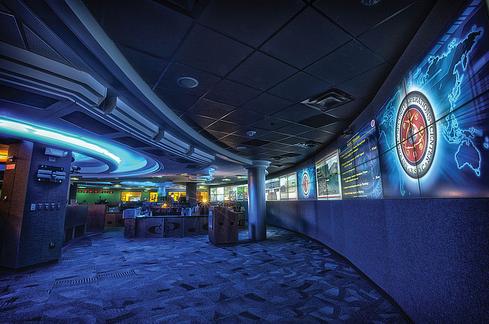New disclosures from former NSA contractor Edward Snowden detail the National Security Agency's RETRO system.


Android Security: 8 Signs Hackers Own Your Smartphone
Android Security: 8 Signs Hackers Own Your Smartphone (Click image for larger view.)
The National Security Agency has the capability to capture and retain the phone conversations of an entire nation's people, according to newly disclosed documents supplied by former NSA contractor Edward Snowden, as reported Wednesday by The Washington Post.
The MYSTIC surveillance program can record and store 100% of the voice conversations within a targeted nation on a rolling 30-day basis, giving analysts a virtual time machine to investigate foreign intelligence clues.
The system uses a tool in operation since 2011, called RETRO, which can intercept and maintain recordings of billions of phone conversations, according to documents reported by the Post. The documents include an emblem of the MYSTIC program, which depicts a cartoon wizard with a telephone-headed staff.
[Why was Facebook's Mark Zuckerberg upset with the NSA? Read NSA Denies Impersonating Facebook To Serve Malware.]
Operating the RETRO system and giving analysts the ability to replay selected voice conversations would require a substantial amount of storage and processing. One storage expert who spoke with InformationWeek but asked not to be identified estimated that the call volume of a country with 180 million people (the size of Pakistan, which wasn't identified as a country targeted by the program) would require 12 petabytes of storage per month.
Revelations of the bulk acquisition of phone conversations aren't entirely new. Details of the program were initially described in a secret intelligence budget, reported in October by the Post. The document identified the MYSTIC program, saying it provides "comprehensive metadata access and content," but it remains unclear from the documents whether the NSA is currently recording calls on a mass scale. The Post report published Wednesday honored the request of US officials to withhold details that could be used to identify the countries or the extent to which the system is in use.
The ability to collect and store billions of voice conversations, not just metadata, taking place in foreign nations stands in contrast to recent statements by NSA officials and the White House. When the Snowden leaks revealed last June that the NSA was collecting the phone records of Americans, NSA Director Gen. Keith Alexander insisted that the spy agency collects only call record data, not the content of US phone conversations.
However, if the NSA, under the MYSTIC program, identifies a call of interest between a US citizen and someone in a foreign country targeted by the program, it would be possible to retrieve the conversation from the RETRO database. The program also appears inconsistent with President Obama's pledge, in a Jan. 17 speech, that the US isn't spying on ordinary people who don't threaten national security.
James A. Lewis, director of the Strategic Technologies Program at the Center for Strategic and International Studies, told InformationWeek there's nothing particularly new in this latest revelation. "NSA collects billions of messages but reads only a few thousand" as part of its mandate to protect the nation against foreign threats. "It's better to think of NSA as creating a searchable database of communications." He also said the agency's activities are consistent with the president's pledge to maintain the nation's intelligence-gathering capabilities even as it considers further steps to safeguard the privacy of citizens.
An independent task force, at the president's request, issued a 300-page assessment in December on US intelligence practices, in particular the bulk collection of communications records of US citizens. The panel determined that the NSA's surveillance activities aren't illegal, but it recommended that Congress place more limits on the government's ability to collect information on US citizens. President Obama hasn't moved on those recommendations.
The MYSTIC program is authorized under Presidential Executive Order 12333, which grants authority to intelligence agencies for operations outside the US.
Christopher Soghoian, the principal technologist for the American Civil Liberties Union, told the Post that history suggests that "over the next couple of years [the NSA] will expand to more countries, retain data longer, and expand the secondary uses." When contacted by the Post, spokesmen for the NSA and the office of National Intelligence Director James R. Clapper Jr. declined to confirm or deny whether the surveillance program is being expanded, or to discuss the criteria for any change.
Interop Las Vegas, March 31 to April 4, brings together thousands of technology professionals to discover the most current and cutting-edge technology innovations and strategies to drive their organizations' success, including BYOD security, the latest cloud and virtualization technologies, SDN, the Internet of Things, and more. Attend educational sessions in eight tracks and visit an Expo Floor more than 350 top vendors. Register with Discount Code MPIWK for $200 off Total Access and Conference Passes. Find out more about Interop and register now.
About the Author(s)
You May Also Like







